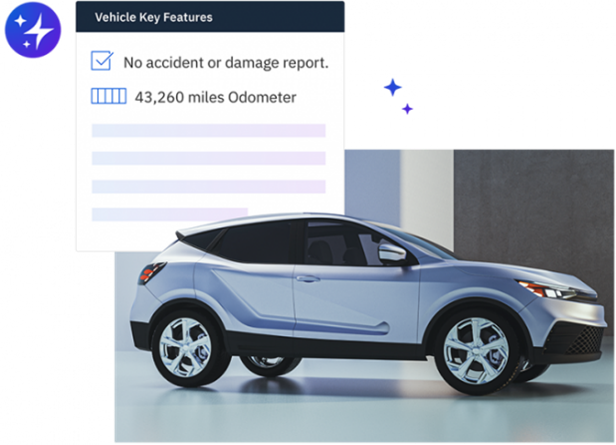Top 4 Misses In Your BDC

Article Highlights:
- BDC teams are their own department, not just assistants to the sales team.
- If your BDC doesn't have the right focus, you could see some friction.
Generating new opportunities is the most important job of the business development center. If you’re not running it correctly, you’ll miss out on numerous opportunities for your dealership to sell.
I’ve observed many BDCs over the years. A major problem I’ve noticed is how management views the BDC. Too often, management teams consider the BDC as “office staff” or simply assistants to the sales team. In reality, the BDC is another division of the sales department.
There are four common mistakes that can keep your BDC from generating the growth your business needs:
1. Assigning the Wrong Tasks
Most BDCs focus on opportunities that have already presented themselves: phone ups, internet leads, and unsold showroom visits. If you leave it up to your BDC to pursue this low hanging fruit, you are not getting the best return on investment for developing business. The BDC is capable of logging opportunities and getting leads routed to staff, but you can also rely on technology to assist with these tasks. If a BDC specialist is focused on phone ups, you could see some friction when the customer arrives and is immediately turned over to sales. Remember, the sales team is usually best suited for turning a lead into a sale.
The BDC, on the other hand, should be focused on data mining, working the service drive, greeting customers, working the orphan base, and tracking the true number of daily floor ups your dealership sees. I call these development tasks.
2. Hiring the Wrong Staff
If you really want growth and development for your dealership, you shouldn’t staff your BDC with inexperienced employees. It’s cheaper to pay minimum wage – which I see too often – but a BDC employee needs to be aggressive and experienced at creating opportunities. Often times it requires more incentive to bring in the right staff.
When looking to staff your BDC department, you can’t simply look for a group of customer advocates. You need to find driven people who are eager opportunity makers.
A good rule of thumb to follow is if you’re not confident each BDC specialist can make 120-150 productive calls each day, you likely don’t have the right people for the job.
3. Applying the Wrong Pay Structure
You should compensate the BDC for things they can control, not those we hope they control. Too often, BDC staff is compensated for sales even when they have no control over the sale.
Wonder why the BDC isn’t setting enough appointments? It’s because they are qualifying opportunities to customers they feel are most likely to buy. They don’t want to waste their time on a poor opportunity if the majority of their pay is based on sales.
The BDC has no control over the sales process, so why compensate them based on the number of sales made. This type of structure will lead to a staff that cherry picks the best opportunities. Plus, BDC staff will become frustrated if the salesperson “blows the lead.”
A better alternative is to create a commissioned pay plan that allows for a real income if certain metrics are met. What types of metrics should you target? A good foundation includes appointments that show up, number of calls made, number of appointments set, and number of customers approached on the service drive.
4. Confusion on Lead Management
Many times the BDC and sales staff are in conflict. Both sides claim “It’s my lead!” or “That’s my customer!” The sales staff thinks, “The BDC mishandles opportunities and takes my customers.” Meanwhile, the BDC thinks, “The sales staff blows the sale and isn’t prepared because they don’t read the notes.”
The BDC, sales, and service teams that work best together clearly understand and have bought into the process. BDC generates opportunities – lots of them – and the sales and service staff sell to them. When an appointment is set, the sales staff should know an opportunity is coming in and be prepared to take the up with a vehicle ready. The thinking should be, “we are all on the same team in the same boat, rowing together.”
Rethink Your Strategy
Don’t consider your BDC department “assistants to the sales team.” At the same time, you shouldn’t put pressure on your BDC by evaluating them based on the sales team’s performance. Your focus with your BDC department needs to be on hiring the right people who can set the sales team up with golden opportunities to close new deals. If you have a group that is committed to creating new opportunities for your business to go along with a talented sales team, you have a recipe for success.
For more information on our Business Development Center consulting services, contact Reynolds Consulting Services at 800.657.9784 or send us an email, consulting@reyrey.com.
Related Articles:

The Future of Variable Ops with Experts at NADA 2025
Explore how AI is transforming variable operations in automotive retailing with insights from NADA 2025. Learn about efficiency, profitability, and fraud prevention from industry leaders.

Decision made regarding the Vehicle Shopping Rule – now what?
Check out five key takeaways from the Vehicle Shopping Rule to keep your dealership safe from FTC enforcement actions.

3 Ways AI Can Elevate Your Dealership’s Online Inventory
On average, Americans are exposed to between 4,000 and 10,000 advertisements every day. From commercials on TV to billboards on your way to work, all…

The Pizza Playbook – What Ordering Pizza Teaches Us About F&I
For as long as I can remember, my family had “pizza night” every week. Without fail, every Friday evening we’d all gather around the computer…















